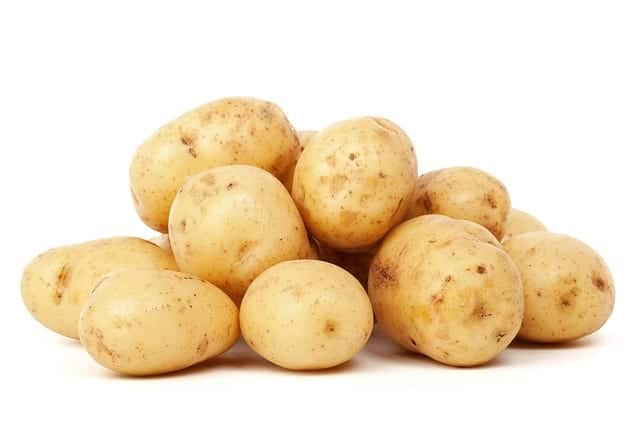Prince Edward Island
After a month of very high rainfall, the last suitable day for harvest was November 9. Many growers dug for 24 hours around the clock until rain came again in the early hours of November 10. Abnormally cold temperatures dipped to -15 C and two snowstorms since have prevented further progress. The PEI Potato Board surveyed all growers and estimate that 6,800 acres were unable to be harvested. All four sectors of processing, table, seed, and chipstock have been affected in that order. Between 2 to 2.5 million hundredweight may have been left in the ground due to extreme weather conditions.
Nova Scotia
Growers could not catch a break from early frost in the spring, to a summer of drought, to excessive rains at harvest. Some fields still had water between the rows and had to be abandoned.
New Brunswick
When cold weather set in, many growers had 20 to 25 acres left to finish and one grower had a very large block to harvest. Estimated acreage unharvested is between 500 to 1,500 acres. In addition, those later harvested acres have some cold damage. Yields were relatively good, however defects are a concern for both fresh and processing with regard to off types, gravity, and colour.
Quebec
The harvest turned difficult in the northern part of Quebec and cold temperatures stalled harvest. The estimate of acres that had to be abandoned is close to 2,000 acres. A dry summer had reduced overall yields, but an even bigger concern is the size profile. An early frost stopped tubers from bulking into that chef or jumbo size.
Ontario
Most of the crop got harvested. The province had a tough difficult, late harvest with wet conditions, however the temperatures never dipped to the extremes of other provinces. Given the hot, dry summer, many buildings are not full and others do not have potatoes stored in them at all. Size profile is also a concern for chef markets.
Manitoba
Harvest in Manitoba has left 5,200 acres abandoned due to harvest conditions. This 2,000,000 cwt. was mostly designated for the processing market. In addition, the last several thousand acres dug after severe cold temperatures are now having storage difficulties as they warm up. Processing potatoes are currently being imported to meet commitments.
Saskatchewan
Severe cold in Saskatchewan stalled harvest when it was only 35% complete. Some acreage was harvested after the frost and others were abandoned.
Alberta
There was still 5% of the crop to be harvested when snow and/or cold weather set in. However, after a 4-week period the temperature did warm up and the soil dried allowing most of harvest to be completed. About 500 acres had to be abandoned. Colour was lost after the cold and warehouses containing those potatoes are being monitored closely for storage issues.
British Columbia
Harvest went well allowing growers to complete the job before bad weather set in. Yields were good, above last year, and also had good quality.
For more information contact:
Kevin MacIsaac











